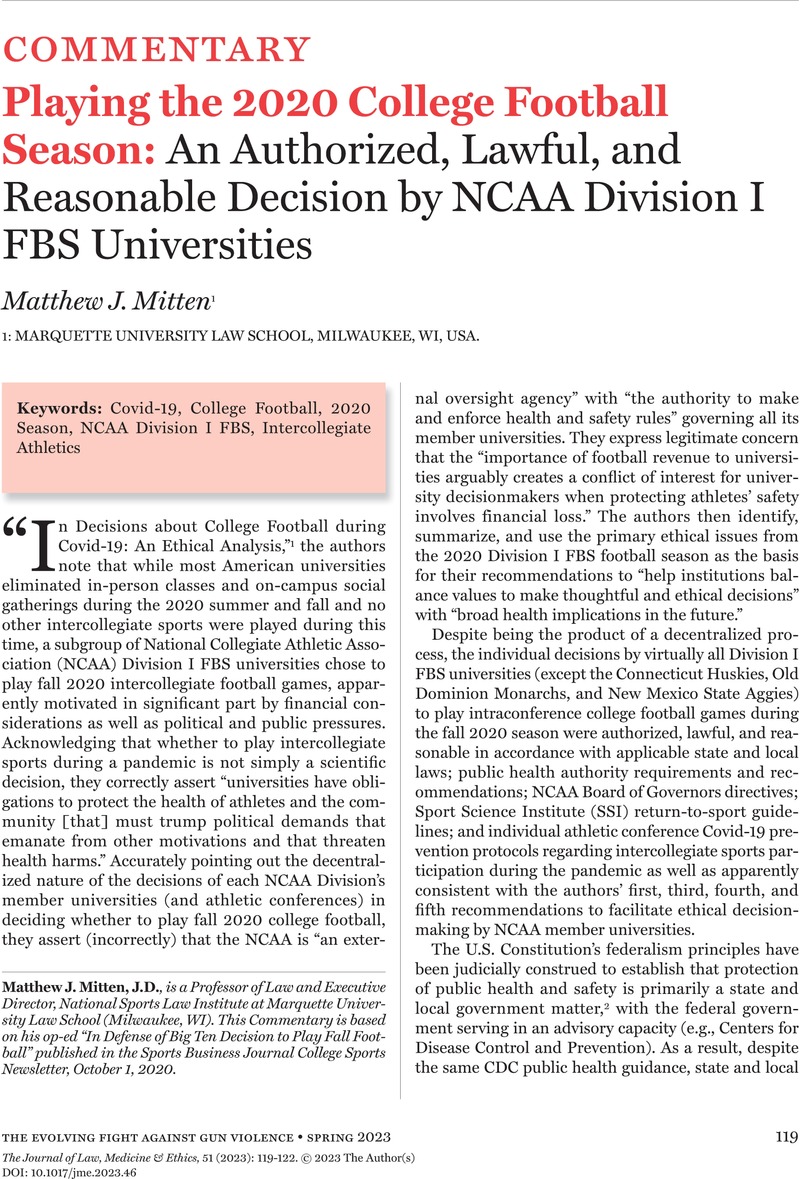“The Impact of Covid-19 on Sport, Physical Activity, and Well-Being, and Its Effects on Social Development,” United Nations, May 15, 2020,
available at <
https://www.un.org/development/desa/dspd/2020/05/covid-19-sport/> (last visited Feb. 24, 2023).
+(last+visited+Feb.+24,+2023).>Google Scholar
